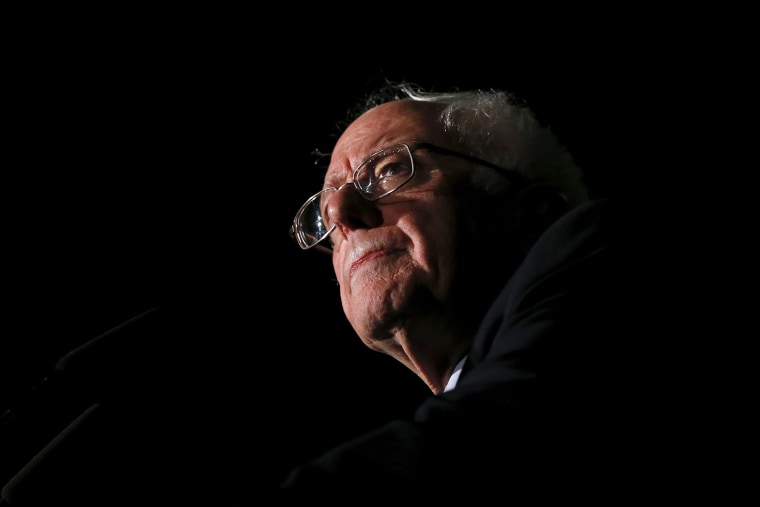ORLANDO, Fla. -- Alejandra Chacon’s family had heard promises of a "political revolution" before, but they weren’t willing to stick around long enough to see how it played out.
They bolted from Venezuela when Alejandra was a young girl. And like many other Venezuelans who relocated to Florida, along with their Cuban-American neighbors, hearing a U.S. presidential candidate press for revolutionary change conjures uncomfortable memories of the conditions they once fled.
If under any other circumstance Chacon’s family would be drawn to Bernie Sanders’ message, for now, they’re taking a pause.
“It’s hard for us. We’re coming from a country where people are running away from socialism, and then for it to be here?” Chacon, 22, said.
Over dinner, in coffee shops and around the community, Chacon says the topic of Sanders’ political leanings comes up frequently with her family and others members of the growing Venezuelan community in central Florida. If this presidential election cycle has taught them anything, it’s the difficulty of overcoming a deeply personal association with a message of "revolution" coming from a self-described Democratic socialist.
“I understand that it’s a different kind of politics,” Chacon said. “I don’t think Bernie would actually change the entire country to socialism. But we talk about it a lot.”
For decades Florida has been a haven for exiles who fled the communist regime led by the Castro brothers in Cuba. In recent years a steady population of Venezuelans has resettled here too, escaping the fallout from the late socialist President Hugo Chavez, who came into power in 1999.
Their past experiences, coupled with an unfamiliarity with Sanders’ candidacy, poses obstacles in the Vermont senator’s ability to engage a crucial swing state’s burgeoning Hispanic population. Hillary Clinton is building on a well-known and well-received brand. In many ways, Sanders is starting at zero.
The question of his brand of socialism, and the underlying question of his electability, has been raised repeatedly over the last several months. Confronted with making the distinction during a town hall hosted by MSNBC in Nevada, Sanders was readily game to describe why Hispanic families should not be fearful of his policies.
“When I talk about Democratic socialist, I’m not looking at Venezuela. I’m not looking at Cuba. I’m looking at countries like Denmark and Sweden,” Sanders said. “And you know what goes on in those countries? All of the kids who have the ability and desire go to college. And you know how much it costs? It is free.”
He was pressed anew last week during a debate hosted by Univision, where moderators unearthed a 30-year-old clip showing Sanders praising Cuban dictator Fidel Castro. Standing before a heavily Hispanic crowd in Miami, a stronghold of Cuban-Americans, Sanders had to walk a fine line -- standing by his previous comments while explaining how he had applauded Cuba’s universal health care and educational systems.
The current Venezuelan President Nicolas Maduro entered the fray this week, praising Sanders at an event in the Venezuelan capital, Caracas, that commemorated “Anti-Imperialism Day.”
Sanders “is an emerging candidate with a renovating and revolutionary message,” Maduro said on Wednesday. “He is the son of Jew immigrants from New York and was raised in Brooklyn.”
Much of the response to Sanders’ candidacy has broken down along generational lines, not unlike the response to the normalization of relations between the U.S. and Cuba. The association is especially difficult for older generations who either lived through dictatorial regimes or have grown fearful of what they’ve seen in their home countries from afar.
“I came here 26 years ago, because at that time it was the first sense that something is going to be bad,” said Naloy Zapata, 62, who now lives in Orlando. “So I got out right away.”
Adding to the unease is the fact that Floridians are still getting to know Sanders. This week he visited Florida for this first time in his presidential campaign. His rally in Miami marked 10 months into his White House bid and only one week ahead of the state’s primary.
According to the latest NBC News/Marist/WSJ poll out on Sunday, Sanders is trailing Clinton by 27 points in Florida, 61 percent to 34 percent. For Sanders supporters, the issue boils down to time – they need more of it to correct wrong assumptions and teach people about their candidate.
“People tend to think of the negative examples with socialism,” said Anna Garcia, 29, a Sanders supporter. “I think we have to just teach people the positive.”
